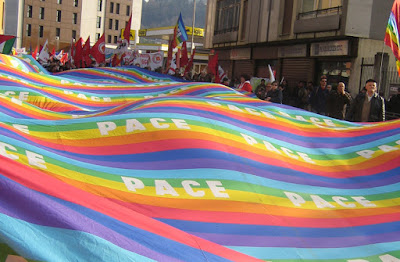On the 29nd
January the charity PACE suddenly closed because of lack of funds.
(1)
PACE opened in 1985 to
“support LGBT+ people to manage the difficulties they face in their
day to day lives; at work, school and home.” (2) To LGBT people in
London, PACE provided counselling, advocacy, training, youth work,
research and mental health support services.
This wasn't high
profile or glamorous work, it certainly wasn't work that made it into
the headlines of many newspaper articles, on even online articles,
but it was still to many LGBT people PACE was a lifeline. The singer
Will Young became a patron of the charity after being involved in
some of its workshop (3). But even a celebrity patron wasn't enough
to save PACE.
The deep cuts to Local
Government funding have deeply afforded many small charities like
PACE, charities that relied on grants and funding from Local
Authorities. Especially charities, like PACE, that provide services
that are not popular or are not seen as “warm” and “cuddly”.
Mental health charities always have problems raising money from
public donations.
Unfortunately the need
for organisations like PACE has not gone away. To be Lesbian or Gay
now is very different then it was back in 1985, we have marriage
equality, employment protections, equality protections; and yet many
things remain the same.
Will Young has talked
about the shame he felt over being gay, shame that he internalised
growing up with the homophobia around him. “I will keep coming back
to shame because it’s such a fundamental thing,” he said. He
described a circle of drinking, sex and watching porn until he
finally overcame it (4).
Olly Alexander, the 25
year old singer of Years & Years has spoken of the problems he
had coming out as gay. He felt repeated pressure to be heterosexual,
was bullied for being gay and at 19 he sort counselling for anxiety.
But since coming out Olly has added that his anxiety did not
automatically go away. “Once you admit to yourself and the world
that you’re gay, there’s an expectation that you put on yourself:
you’re fine now, you’ve gone through the whole thing of being
gay, and now you have to prove to yourself that you can live a happy
life and be happy,” he said. (5)
Homophobia doesn't just
affect those coming out as gay; it can affect someone at any age.
Stephen Fry recently opened up about low and suicidal he felt after
coming face to face with a “frothing” homophobic politician. In
2013, while making a documentary, he had a heated interviewed with
Simon Lokodo, a Ugandan government minister. Lokodo said gay sex was
“worse than child rape”, amongst other homophobia. Stephen Fry
stood by his opinions during the interview, but afterwards fell into
deep disappear and depression. Lokodo's homophobia tipped him over
into a suicide attempt that night (6).
The year 2014-15 Home
Office figures saw a 22% rise in homophobic hate crime (7). In
England and Wales there were 5,597 homophobic hate crimes were
reported, but this figure is probably only a quarter of the actual
homophobic hate crimes committed. Only one in four hate crimes are
reported to the police (7). That is over 20,000 victims of homophobic
hate crimes, over 20,000 people suffering the psychological effects
of being the victims of these crimes.
Homophobia hasn't gone
away, and neither has its negative effects on LGBT people's lives,
but due to this Government's severe slashing of local Government
funding there is now one less place were LGBT people can get support
and advice. The skills and expertise that PACE built up over thirty
years have now been lost, and will be difficult to re-create again.
Now is this benefiting anyone?
This Government's
policy of austerity has already cut deep into public services, and
again the services to LGBT people are the ones that suffer first and
deepest. How can the Government talk about equality and supporting
working people when their cuts do this?
Drew Payne.

